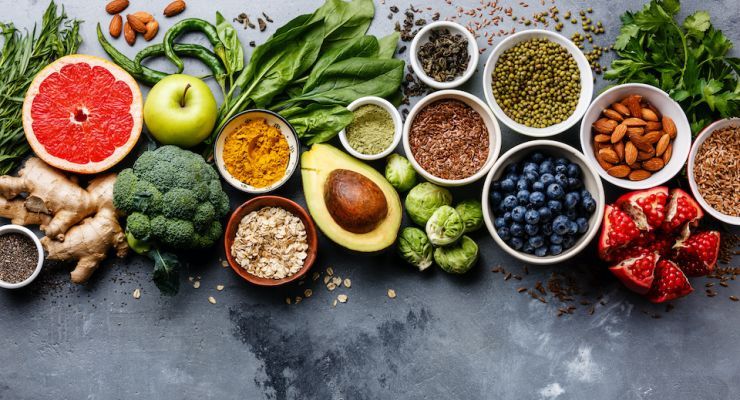You have likely incorporated at least a few immune-boosting foods into your diet in the last few months since COVID-19 started sweeping the globe. However, with winter fast-approaching, there is no time like the present to throw everything you can into keeping your immune system in fighting form. Not just because of the coronavirus, but because of the winter cold and flu season, which is still a genuine and viable threat. Here are the top 7 foods to include in your diet today to build your winter immunity and keep the sniffles at bay.
Ginger
Many people start using ginger after they’ve developed a cold or flu, using it to fight nausea, settle the stomach, and clear out the sinuses. However, it is actually a well-known immune-booster, and eating it regularly can reduce inflammation that leads to illness.
Use fresh ginger slices to brew tea or add it to your food in powdered or grated form.
Blueberries
Not only are they delicious, but blueberries are one of the healthiest fruits in existence as well. They are loaded with antioxidants that fight cancer-causing free radicals and also contain a flavonoid known as anthocyanin that can help boost a person’s immune system. Studies have shown a direct link between this flavonoid and a marked increase in the body’s ability to fight off and avoid respiratory infection.
Enjoy a handful of blueberries along with breakfast, or add them to some Greek yogurt with homemade granola for a delightful, healthy start to your morning.
Turmeric
If any spice has reason to boast, it’s turmeric. This orange flavor-booster is essentially powdered gold. It brings a unique, eastern spin to many dishes, but it is primarily beneficial for its immense health benefits. Because of a compound in turmeric known as curcumin, this spice can activate T-cells in the body, which work hard flighting for your immune-health.
Remember, always take turmeric with black pepper to increase the absorption of curcumin into your body.
Red bell peppers
If you’ve ever been told to take vitamin C while you’re sick to help reduce the severity and duration of your cold, it wasn’t bad advice! Vitamin C can increase the activity of phagocytes in the body, which are immune cells that “swallow” bad bacteria and keep it from infecting you.
Remember, instead of purchasing sugar and chemical-laden pills and drink mixes from the pharmacy, search for your vitamin C in natural sources such as your food. Surprisingly, red bell peppers are actually bursting with vitamin C. They taste delicious too! On a salad, as a snack, or sauteed into a stir-fry.
Citrus fruits
One of the most common fruits that many people reach for when they feel a cold coming on is citrus—specifically an orange. The truth is, there is evidence that backs up this practice, with numerous studies showing the importance of dietary vitamin C., especially in the wintertime when cold and flu germs are more prevalent. You are more likely to be exposed to something nasty, which makes boosting your immune system even more essential.
Remember, while it may help reduce the duration and severity of your cold, citrus isn’t necessarily useful if you only eat it when you feel stuffy, get a sore throat, or begin to sneeze. You must eat at least something rich in vitamin C daily to help encourage and strengthen your immune system to fight against infection.
Wild salmon
There are so many reasons to enjoy wild-caught salmon daily, as this fish is loaded with essential vitamins and minerals that contribute to your health and keep you fit and feeling well. The presence of zinc, however, is one of the main reasons to love salmon for cold-weather immune-boosting purposes.
Enjoy it grilled as a main dish with some lemon squeezed over the top and brown rice and asparagus to round out the meal.
Spinach
Spinach is so full of essential vitamins, nutrients, minerals, and antioxidants that it more than earns its place on this list. Primarily it is heavy in flavonoids, carotenoids, vitamin C, and vitamin E, all of which contribute to an improved immune system.
Try to cook spinach as little as possible since it loses many of its beneficial nutrients when heated. You can cook it slightly on the stovetop to wilt it for use in recipes, but it is best when eaten raw in a salad or on a sandwich.
-Susan Patterson

